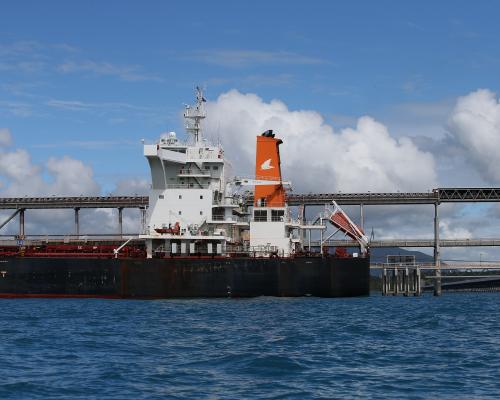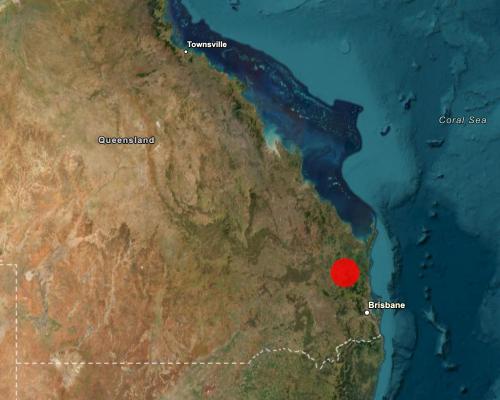
An Adani claim that its Australian export program, whereby coal is sent through the Great Barrier Reef’s shipping channels, is advancing the United Nations’ sustainable development goals has been denounced by leading scientists.
Adani’s Queensland export site claims its operations “ensure access to affordable, reliable, sustainable and modern energy for all”, which is one of the UN’s 17 sustainable development goals.
Australia, along with other UN members, adopted the goals in 2015, designed to address global challenges including poverty, justice, environmental degradation and climate change.
The relevant UN goal is chiefly concerned with providing affordable and clean energy, which it says requires a substantial increase in renewable energy.
Adani’s North Queensland Export Terminal (NQXT) near Bowen has the capacity to export 50m tonnes of coal a year. In its latest sustainability report, NQXT says it supports the UN goal by “enabling the export of high-quality Australian coal to the world”.
One of Australia’s leading experts on the development goals, Prof John Thwaites, said the word “sustainable” in the UN goal was key.
“I would argue that to ‘support the advancement of the sustainable development goals’, energy and port operations need to support sustainable energy,” said Thwaites, the chair of the Monash Sustainable Development Institute.
“Simply exporting coal is not achieving or supporting the sustainability objective of the goals.”
-
Sign up to get climate and environment editor Adam Morton’s Clear Air column as a free newsletter
He said there were also numerous references in the UN goals for the need to take action on climate change, and that “simply exporting coal which will be burned and produce greenhouse gas emissions overseas” is not supportive of this.
Another leading expert on the UN agenda, Dr Cameron Allen, said the intention of the energy development goal was to “focus on sustainable energy and clean energy and I don’t think fossil fuels or coal falls into that”.
“I don’t think anyone would agree that it’s in line with the aims of that goal,” said Allen, from Monash University.
“Exporting coal isn’t in line with the sentiment … or the language of the goal, which includes the word sustainable. The international climate change agreements also make it clear that burning fossil fuels is not sustainable.”
Guardian Australia has been scrutinising various claims made by Adani after finding that its Carmichael coal operation has paid zero corporate tax in more than three years of operation, and may never do so.
The Indian conglomerate had pledged to plough billions of dollars into the Australian economy through taxes and royalties when it was going through the contested approvals process to establish an open-cut coalmine in the Galilee Basin.
In response to questions about how its operations advance the UN sustainability goals, a spokesperson for Adani’s Australian mining business, which is branded Bravus Mining and Resources, said coal exports helped combat poverty.
“Developing nations in the Asia Pacific region use coal from the Carmichael mine alongside renewables to provide reliable and affordable energy solutions that help reduce poverty and power growth,” the Bravus spokesperson said.
Adani’s port facility website also says its operations align with a UN goal to protect terrestrial ecosystems by managing its water on-site next to neighbouring wetlands.
Traditional owners have raised concerns over the threat posed by the coal operations to the nearby Caley Valley, in claims rejected by Adani.
In 2017 and 2019, flood waters were released from the port into the wetland. In the 2017 incident, the Queensland government later found the water that turned areas of the wetlands black from coal dust had not caused a widespread impact.
Adani’s Carmichael mine, rail and port operation is among the most politically divisive projects in Australia, given it has opened up new fossil fuel reserves in a sensitive location at a time the country has pledged to transition to renewables.
Claire Snyder, director of watchdog group Climate Integrity, said the NQXT claim amounted to aggressive greenwashing.
“Framing coal exports as a contribution to sustainable development undermines global climate goals, misleads the public, and uses the authority of the UN to legitimise ongoing harm,” Snyder said.
“Given what we know about coal’s role in driving climate breakdown, this is wilful disinformation and meaningless sustainability waffle to protect the social licence of coal.”





